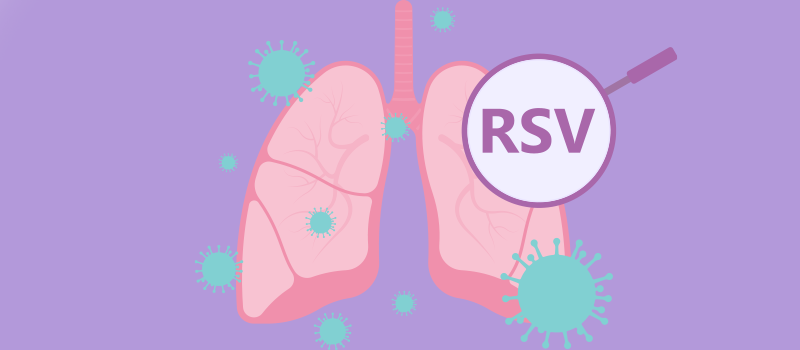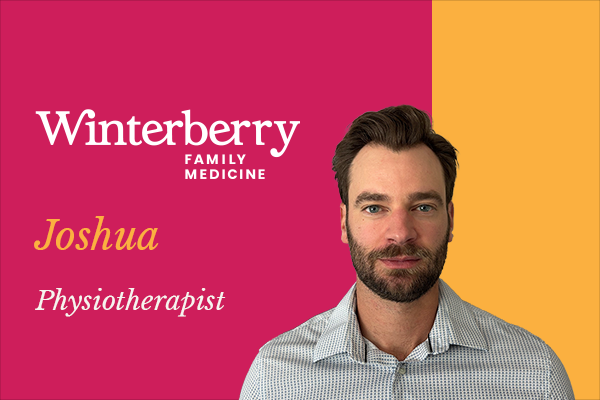Overview
Respiratory syncytial virus (RSV) is a major cause of respiratory illness, particularly among infants, young children, and older adults, affecting the lungs and airways. RSV is the most common cause of bronchiolitis, a common chest infection that affects infants and toddlers. Immunization is available to help prevent serious outcomes, such as hospitalization, caused by the virus.
When you visit Winterberry, we will encourage you to receive your RSV vaccination if you are eligible.
Certain high-risk adults aged 60 years and older may be eligible for the vaccine. Adults aged 60 years and older who don’t qualify for the publicly funded program can still purchase the vaccine with a prescription from their family doctor or other primary care provider.
Signs and symptoms of RSV
Symptoms of RSV are similar to those of the cold or flu, including:
Coughing, a runny nose, fever, wheezing, a decrease in appetite and energy, irritability in children
Because these are common symptoms, it is easy to mistake RSV for other respiratory illnesses, such as the flu or COVID-19. While most RSV symptoms will go away in a few days, seek medical attention if you or your child have trouble breathing, are not drinking enough fluids or are experiencing worsening symptoms.
Key facts
Most people who get an RSV infection will have mild illness and will recover within a week or 2 without the need for medical attention or treatment
For some people, RSV may result in severe infections, particularly among infants, young children and older adults (RSV can also make chronic health problems worse)
People are most likely to catch RSV from late fall to early spring, when the virus is most active
How RSV is spread
RSV is very contagious and spreads the same way as a common cold by:
Touching droplets containing the virus after someone coughs or sneezes
Being close (less than 2 metres apart) to someone with the infection who is coughing or sneezing
After exposure to the virus, it can take 2 to 8 days before becoming sick. People are usually contagious for up to 3 to 8 days. Children are often exposed to and infected with RSV outside the home, such as in school or childcare centers, and can then transmit the virus to other members of the family.
How to treat someone with RSV
In most cases, you can take care of someone with RSV at home as long as they are breathing comfortably, their skin does not look blue and they are drinking and urinating as usual. Most people get better within a week or 2.
Because RSV is a virus, antibiotics will not help someone get better faster.
What you can do to help
Manage fever and pain:
Use over-the-counter acetaminophen or ibuprofen
Do not give ibuprofen to babies under 6 months old without first talking to your doctor or other primary care provider
Never give aspirin to children
Hydrate:
It is important to drink enough fluids to prevent dehydration (loss of body fluids)
If your baby is having trouble drinking, try to clear nasal congestion gently with a bulb syringe or with saline (salt water) nose drops
Bathing:
A lukewarm bath or wet face cloths will not change someone’s body temperature, but may help them feel more comfortable
Avoid cold baths because they are uncomfortable and can make the person shiver, raising their temperature
Alcohol baths or rubs are not recommended
Clothing:
Dress in light clothing, to allow the body to cool down and help increase comfort
If the person starts to shiver, add warmer clothing — remove them when the shivering stops
Talk to your health care provider:
Before combining natural or herbal supplements with medicine, as some of ingredients may interact
Some medicines, like over-the-counter cough and cold medicines, contain ingredients that are not good for children
When to go to an emergency department
Some people can develop a severe form of RSV, which may result in pneumonia or, in infants and children, bronchiolitis. These illnesses can be serious and may require a visit to a health care provider or to the emergency department.
Go to an emergency department if someone:
Has trouble breathing (working hard to breathe, breathing faster than normal), pale skin, lips that look white or blue, asthma or wheezing
Has any of the following symptoms:
Severe RSV infections can result in lung infections or pneumonia in some older adults and those with underlying health conditions. RSV can also lead to worsening of:
Asthma
Chronic Obstructive Pulmonary Disease (COPD) — a chronic disease of the lungs that makes it hard to breathe
Congestive heart failure — when the heart can’t pump enough blood and oxygen through the body
Adults who experience difficulty breathing should seek immediate medical attention.
How to protect yourself and others from RSV
Stay home: Stay home if you or someone you’re caring for are sick and until you/they have no fever and symptoms are improving for at least 24 hours (or 48 hours if there was nausea, vomiting and/or diarrhea). Wear a mask when you are outside your home and in public places for 10 days from when your symptoms started.
Clean surfaces: Clean surfaces in your home that are touched often on a regular basis.
Wash your hands: Wash your hands often to reduce the spread of germs. Ask others to do the same.
Use your arm: Coughing or sneezing into your arm instead of your hands and putting used tissue into the garbage right away.
Don’t smoke: Make sure nobody is around cigarette smoke, especially in your car or home.
High-risk older adult RSV vaccine program
In fall 2023, Ontario introduced its first publicly-funded high-risk older adult RSV vaccine program.
Ontario will continue this program with expanded eligibility in 2024–25. This includes adults aged 60 years and older who are also:
Residents of long-term care homes, Elder Care Lodges, or retirement homes
Patients in hospital receiving alternate level of care (ALC) including similar settings (for example, complex continuing care, hospital transitional programs)
Patients receiving hemodialysis or peritoneal dialysis
Recipients of solid organ or hematopoietic stem cell transplants
Those experiencing homelessness
Those who identify as First Nations, Inuit, or Métis
At Winterberry we are here to help you decide if the RSV vaccination is right for you. Book an appointment using our online appointment link and protect yourself.


